|
In mid-May I was a presenter at the Young Authors, Young Artists conference in Rochester, Minnesota. My workshop was called The Question Session: Q & A Your Way to Great Writing. Over the course of three days, I worked with close to 270 kids in grades 3 to 5. I thought I’d share the highlights—and a few lowlights—of what it was like. The gist of the class: Questions are a simple, effective tool that can help us enrich our writing. To get the ball rolling, instead of introducing myself in the usual way, I had the kids ask me questions. I told them they could ask me anything, serious or silly. They didn’t go for the silly questions the way I expected, but they did seem to appreciate the go-ahead to ask personal questions.
We talked about how questions help us access different types of information in our brains. The kids picked a writing prompt question (or made up their own) and wrote a quick first draft. Then we took a short break, which was also question-themed, of course. Everyone stood up and I asked a bunch of yes-and-no questions. For a “yes” we jumped twice; for a “no” we touched our toes. My questions ran the gamut. I learned that: almost every kid had bought something at a garage sale; only a few had broken a bone; about half of them liked pickles; about a third currently had a crush on someone; most could use chopsticks; and the vast majority had a secret. I was happy with how well this exercise went—the kids seemed to enjoy it and were sorry when the game was over. And yet it was so simple. (Witness the power of questions!)
At the end the kids could share their work if they wanted to. Many of them read work based on the question If you had a bazillion dollars, what would you spend it on? Every single child who had chosen that prompt talked about using the money to help people. Every single one. But you could tell that the older kids, the 5th graders, were already worried about college. Several of them said that after giving money to charity and buying some cool stuff for themselves and their families, they would put money aside for their college educations. So yes, even with a bazillion dollars and no need to have a job at all, the kids believed they should go to college—and they knew it would cost a lot of money. Another popular prompt was If you could have any animal in the whole world as a pet, what would it be? One girl approached me as the kids were starting their first drafts. “Can I create my own animal?” she whispered. “Sure!” I said. When it was time to write second drafts, she came up to me again. “I made up an animal. Can I write from the animal’s perspective?” “Of course you can!” I told her. “What a great idea!” Her face brightened. I’m sure mine did too. This is the power of creative writing: You get to say YES. But sometimes saying YES comes with a price. An older girl chose the prompt What’s the hardest thing you’ve ever done?. She talked about how hard it was that she hadn’t seen her dad in three years. I really hope that girl keeps writing.
0 Comments
Leave a Reply. |
Nancy Loewenis a children's book author, editor, tutor, mom of two adult children and one feisty cat, and collector of weird things. Featured Posts
My Reading Corps Service
Letters for Kids Double Rainbow A Blue Ribbon Day A Kind Neighbor, a Beaded Tree
Categories
All
Archives
December 2023
|
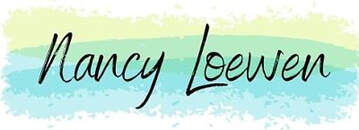
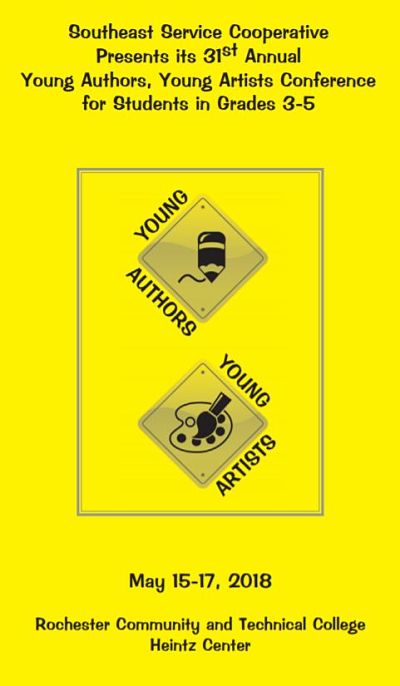
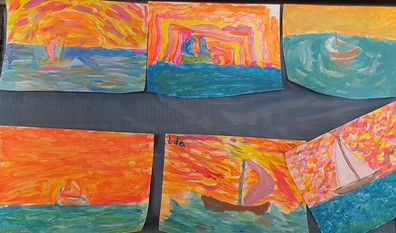
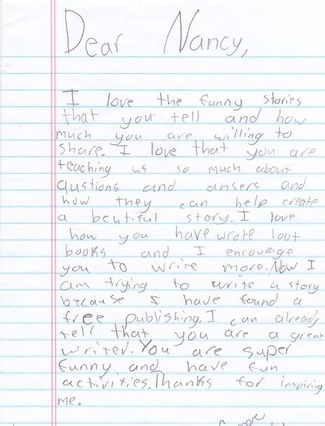
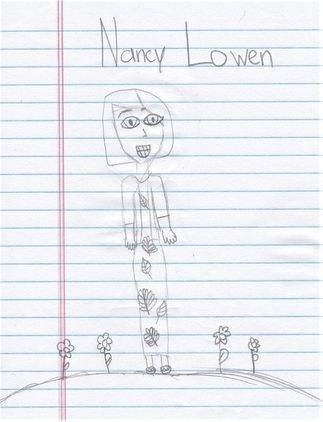
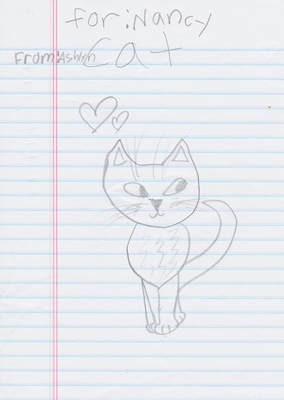
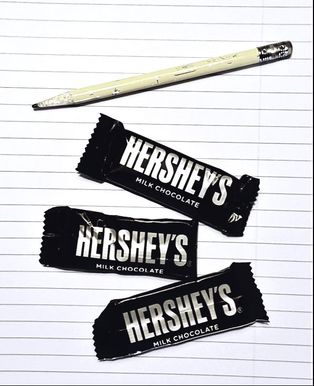
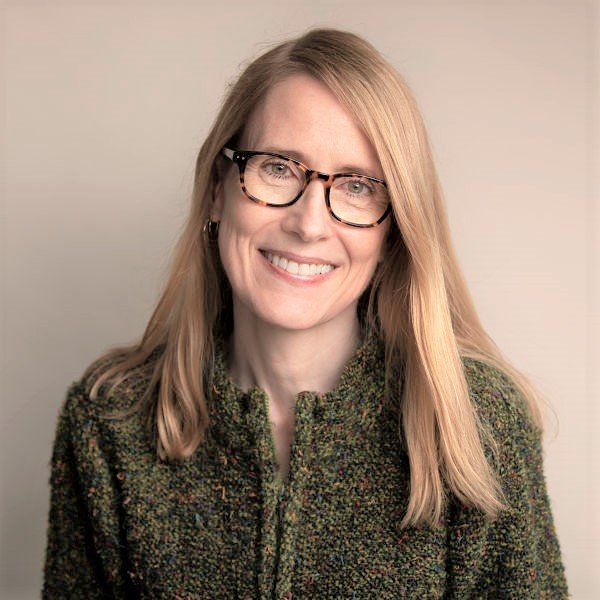
 RSS Feed
RSS Feed